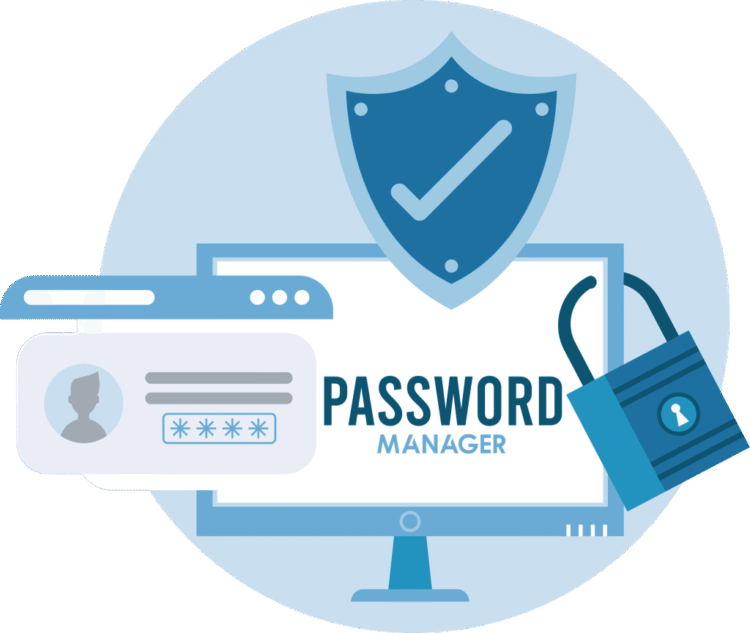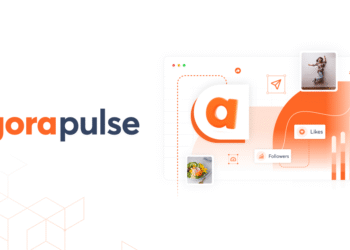In today’s digital world, reliably managing your credentials matters more than ever. A strong online password manager makes it easy to securely store, generate and manage passwords across devices so you can stop re-using weak passwords and reduce your risk of a breach. But how do you choose the best password manager? In this guide we’ll compare five leading tools in depth, explore what to consider in a password management solution and help you decide what fits your needs.
Read More: Cloud Infrastructure Security in 2025: Trends, Tools, and Threats
How to Choose the Best Password Manager
When comparing solutions, keep these criteria in mind:
Security & Encryption
Prioritize for AES-256 or equivalent encryption, zero-knowledge architecture (provider cannot access your vault), passkey support (modern alternative to passwords) and strong multi-factor authentication (MFA).
Device & Platform Support
Ensure the tool works across desktop, mobile, browser extensions (including Chrome, Edge, Firefox, Safari) so you can manage passwords everywhere.
Advanced Features
Consider features like password sharing (for families or teams), dark-web monitoring, passkey support, password health auditing, secure notes, and backup/restore options.
Value & Pricing
Compare free tiers, personal vs family vs business pricing, what features are included, and whether you’ll need upgrades later.
Ease of Use and Ecosystem Fit
A tool is only useful if you’ll actually use it. Good UX, reliable autofill, seamless device sync and easy migration matter a lot.
Top 5 Password Managers
Here are five reliable providers for the best password manager in 2025.
Bitwarden

Bitwarden is best for growing teams and organizations on a budget, tech-savvy users who might self-host, and anyone who wants high value without high cost.
Features:
- Open-source core, AES-256 encryption and passkey management.
- Unlimited devices even on the free tier.
- Self-hosting option for advanced users.
Pricing:
- Teams Plan: $4/month per user (billed annually) which includes all premium features plus secure sharing, event log monitoring, directory integration, and SCIM support.
- Enterprise Plan: $6/month per user (billed annually) that adds enterprise policies, passwordless SSO, account recovery, self-hosting, and a complimentary plan for all users.
Both plans are designed to enhance security, productivity, and seamless integration for growing teams and large organizations.
Pros:
- Excellent free tier and very low cost premium.
- Open-source transparency appeals to security-conscious users.
Cons:
- Interface is more basic compared to premium competitors.
- Some advanced enterprise features require paid tiers.
1Password

1Password is great for small teams and individuals who prioritise ease-of-use and high polish over lowest cost.
Features:
- Strong UX, unlimited device support, passkey support, “Watchtower” breaches and weak-password alerts.
- Family and team vault sharing and admin controls for businesses.
Pricing:
- Individual Plan: $2.99/month (billed annually) which includes secure password generation, autosave/autofill, cross-device access, sharing, and breach alerts.
- Families Plan: $4.99/month (billed annually) that adds up to 5 members, unlimited shared vaults, and simple admin controls.
- Teams Starter Pack: $19.95/month for up to 10 users which offers secure sharing, role-based access, security alerts, and developer tools.
- Business Plan: $7.99/month per user (billed annually) which includes advanced integrations (Okta, OneLogin, Duo), role-based vault sharing, and Watchtower security insights.
Pros:
- Polished interface and strong sharing/management features make it ideal for families and teams.
- Excellent cross-platform support and modern features (passkeys).
Cons:
- Cost is higher than budget options like Bitwarden.
- Not open-source.
LastPass

LastPass remains one of the most recognizable names in password management, offering a simple, cloud-based way to manage passwords across browsers and devices. Despite past security challenges, it continues to refine its features and remains a popular choice for users seeking an easy-to-use online password manager.
Features:
- Established, widely supported across platforms, strong vault and sharing features.
Pricing:
- Premium: $3/month (billed annually) which is ideal for personal use with unlimited password storage, autosave/autofill, and multi-device access.
- Families: $4/month (billed annually) that includes 6 Premium accounts and shared access for family or friends.
- Teams: $4.25/user/month (billed annually) is designed for startups and small teams with shared folders, admin console, and 25 security policies.
- Business: $7/user/month (billed annually) which offers 100+ security policies, group management, and LastPass Families for employees.
- Business Max: $9/user/month (billed annually) that has advanced enterprise-grade plans with SaaS Monitoring, Protect tools, unlimited SSO apps, and advanced MFA.
Pros:
- Very familiar to many users; smooth transition from browser-saved passwords.
- Broad device/browser support, strong brand presence.
Cons:
- Has had security incidents in its past; users must review current trust posture.
- Features and value may not be as generous in free tiers compared to rivals.
Dashlane

Dashlane is perfect for those who want an “all-in-one” security bundle (password manager + VPN + monitoring) and have a moderate budget.
Features:
- Unlimited passwords, passkey support, bundled VPN, dark-web monitoring.
- Strong consumer feature-set including phishing alerts.
Pricing:
- Free plan: up to 25 passwords on 1 device.
- Premium: ~$4.99/month (billed annually) including VPN and dark-web monitoring.
- Family: ~$7.49/month for up to 10 users.
Pros:
- Strong value if you want bundled extras (VPN + monitoring) as well as password management.
- Good for families up to 10 users.
Cons:
- Free tier is quite restricted (only 25 passwords on one device).
- Price is higher compared to basic password managers.
- Some features may be missing in certain apps.
Keeper
Keeper is ideal for teams and businesses who need strong access control, sharing and compliance features.
Features:
- Enterprise-grade features, secure sharing, privileged access, modules for file storage/MFA.
Pricing:
- Personal and family plan details available on Keeper’s site; business pricing modules can raise cost depending on add-ons.
Pros:
- Strong for business usage or advanced needs; good sharing features and team control.
- Excellent security posture.
Cons:
- Cost grows quickly with add-ons; may be over-kill for simple personal use.
- Free tier is limited or non-existent compared to some competitors.
Read More: Top 15 Essential Open Source Cyber Security Tools for 2025
Final Thoughts
Choose the best password manager means balancing your budget, platform ecosystem, and feature needs. For many users, Bitwarden stands out as the value champion. If you have family or team sharing needs and want a polished experience, 1Password is a great choice. Dashlane is strong if you want bundled extras like a VPN and monitoring. Keeper shines for business/enterprise use. And LastPass remains viable if you want a familiar brand with broad device support.
Whatever you choose, using a strong password management solution is one of the smartest steps you can take today to protect your digital identity. Act now, import your credentials, enable strong MFA, and move toward a simpler, more secure password-managed life.
FAQs
Q: What is the difference between a browser’s built-in password vault and a dedicated password manager?
A: Browser-based tools often provide basic storage and syncing but may lack advanced features such as sharing, passkey support, cross-browser extensions, dark-web monitoring and richer account-management controls. A full-fledged password manager gives you better control and features.
Q: Can I really trust an online password manager?
A: Yes, if it uses strong encryption (like AES-256), zero-knowledge architecture (meaning the provider cannot decrypt your data), offers two-factor authentication, and is well-reviewed or audited. For example, Bitwarden uses AES-256 encryption and a zero-knowledge system.
Q: Is the free tier enough for managing my passwords?
A: It depends on your needs. If you just need to store logins for yourself across devices, many free plans suffice (e.g., Bitwarden’s free tier). If you need sharing, business features, family vaults or additional services (VPN/dark-web monitoring), then you’ll likely benefit from a paid plan.

















